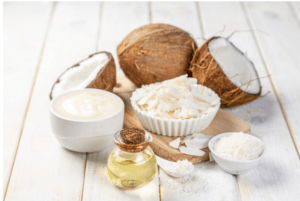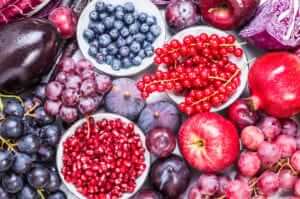Your brain is an intricate, complex system, responsible for sending signals to all parts of the body to keep the heart beating, blood pumping, and lungs breathing. Not to mention, all the functions of learning, decision-making, and cognitive function.
Surprisingly, what your brain needs to carry out all these crucial functions is very straightforward. As complicated as the brain may be, the nutrients and energy it requires are actually quite simple.
Your brain loves:
Steady energy. Rapid spikes in blood sugar due to processed carbohydrates in the diet create a very volatile environment for the brain. The human brain is an incredibly energy-hungry part of our body–and rightly so!–its many functions demand an efficient source of energy. The brain performs best when energy sources are stable, readily available, and consistent.
When blood sugar is sharply rising and falling (picture a rollercoaster) throughout the day, the body produces stress hormones to try to keep it stable that can have a negative impact on brain communication.
Low inflammation. As one of the body’s most active tissues, the brain is susceptible to oxidative damage from normal metabolic processes, as well as environmental toxins and stress.
Oxidative damage can cause inflammation in the brain, as well as the rest of the body.
The right nutrients. Unfortunately, the standard American diet provides a recipe for poor cognitive function.
We not only need the right blend of optimal fats, proteins, and carbohydrates, but targeted micronutrients in the form vitamins, minerals, and phytonutrients to promote optimal function for brain cell health and function.
Let’s find out how easy it is to work brain foods into your day!
Salmon, and fatty fish.
The right fats are essential for ensuring your brain has the building blocks it needs. Salmon, and other fish such as mackerel and sardines are rich sources of omega-3s, which are a kind of fat that the body doesn’t synthesize on it’s own–so we MUST obtain it from diet.
What’s the fuss about omega-3s? By weight, over half the brain is made of fats, such as DHA and EPA. These fats are involved in the synthesis and function of neurotransmitters (like the feel-good transmitter, dopamine), and in the lipid messengers that protect brain cells (1).
A low dietary intake of omega-3s has been associated with impaired cognitive performance and decreased neuroplasticity (2).
Prefer to get your omega-3s in a convenient, tasty, easy-to-take supplement? Our favorite is right here in the shop.
Fish is also a great source of an amino acid called L-carnitine. L-carnitine has been shown to improve age-related cognitive decline in older adults, and can also be found in supplement form, and in other sources of meat for those who don’t prefer the taste of fish.
Acetyl L-carnitine, found in supplements, is able to cross the blood brain barrier and donate to the brain’s powerful neurotransmitter, acetylcholine, which is responsible for activating brain communication.
MitoVive is formulated with L-carnitine, and a targeted blend of mitochondrial support factors to promote energy production for the brain and body.
Coconut oil and MCTs
Coconut oil has received some confusing press over the past few years, with proponents swearing by its health-supportive properties, but detractors warning against its high fat content.
As with most things, the truth lies somewhere in the middle, and it also means there’s some serious science backing coconut oil’s health benefits.
Coconut oil is a natural source of medium chain triglycerides, or MCTs. Because of their special molecular structure, MCTs are easily and efficiently broken down for energy and directed toward the brain or muscles. But if we don’t need this energy at the time, this type of fat isn’t stored within the body, making MCTs a desirable source of energy if you’re trying to lose or maintain a healthy weight.
molecular structure, MCTs are easily and efficiently broken down for energy and directed toward the brain or muscles. But if we don’t need this energy at the time, this type of fat isn’t stored within the body, making MCTs a desirable source of energy if you’re trying to lose or maintain a healthy weight.
Looking for an easy way to add MCTs to your day? We like this one blended with coffee, matcha, or tea!
Coconut oil also contains some special fatty acids–caprylic, caproic, capric, and lauric to name a few. Capric acid and caprylic acid in particular inhibit the growth of candida, or yeast, in the intestines (3). This is great news for those looking to improve digestive health if you believe candida overgrowth is the culprit behind your troubles.
Candida overgrowth is responsible for dozens of different ailments, including brain fog, depression and anxiety, dermatitis, insulin dysregulation, and so much more.
Consequently, the source of your brain fog and poor cognition may not be in your brain–but in your gut.
Learn more about the far-reaching impacts of candida overgrowth, and how this opportunistic bacteria can affect your brain in this video.
Avocado
Avocados aren’t just delicious on toast and tacos–they pack a major boost for brain health, too! They’re a great source of two nutrients crucial for brain health: magnesium and vitamin B6.
Within our cells, optimal levels of magnesium are critical for activating our body’s energy currency, ATP (4). These tiny energy molecules must bind to magnesium in order to become biologically active. So, no magnesium equals reduced ATP function, and that means less energy available for your busy brain.
Avocados are also a high dietary source of vitamin B6, which promotes steady energy to the brain, and overall brain comfort.
If guacamole or avo toast aren’t your favorite foods, you might consider adding a fully-methylated B vitamin to your routine, with added magnesium and selenium for energy and immune support.
Eggs
Remember our master neurotransmitter, acetylcholine? Eggs are a high source of choline, which–as you might assume–is part of acetylcholine. Healthy functioning of neurotransmitters promotes normal brain communication, learning, and memory.
There’s one catch though–don’t leave out the yolk! Egg whites are a good source of protein, but it’s the yolk that contains the majority of the egg’s nutrition.
Eggs are also a good source of vitamin B12, lutein, and folate, depending on the chicken’s diet. Low levels of B12 are associated with increased risk of Alzheimer’s, and an inflammatory protein called homocysteine, which can increase risk for cardiovascular disease (5).
Pumpkin seeds
Pumpkin seeds are among the highest food sources of zinc, which has received a lot of attention lately due to its role in immune health.
Lesser known is zinc’s role in healthy nervous system function and synaptic response, which is the ability of a signal to pass from one neuron to another.
Low levels of zinc are associated with impaired DNA during brain development, making zinc a critical nutrient during pregnancy (6).
Pumpkin seeds are also a steady source of balanced energy with 5 grams of fiber, and about 16 grams of fat in a quarter of a cup! This keeps insulin and inflammation levels low, appetite satisfied, and the brain energized.
Red leaf lettuce, blueberries, and purple foods
Nature often builds clues to communicate nutrient density. In this case, it’s color! Blue, purple, and red foods are high in a phytochemical (or plant nutrient) called anthocyanins.
Anthocyanins have antioxidant function, and play a role in healthy brain function by modulating oxidative stress in the brain.
Blueberries in particular have been shown to upregulate brain-derived neurotrophic factor (BDNF), which supports the healthy growth and survival of neurons in the brain. Blueberries also promote neuroplasticity, which is the brain’s ability to adapt and change over our lifetime (7).
While you may hear that you can’t teach an old dog new tricks, the same isn’t true for the brain! By supporting neuroplasticity with the right nutrient-dense foods, we can give our brains the tools they need to adapt and learn throughout our life.
Masala Chai
Long a staple in Eastern culture, chai has gained popularity in the west in recent decades partly because of its delicious taste and soothing properties. But could this beverage be more than merely something to enjoy? Research says absolutely.
You may be familiar with chai tea, which is steeped tea in water. The difference between chai and masala chai is the latter contains spices, which provide its health supportive properties.
Ingredients can vary slightly depending on preference, but basic masala chai contains: cinnamon, cardamom, cloves, ginger, and tea leaves. Some recipes call for the addition of inflammation-modulating turmeric, or adaptogenic saffron.
A warm, spicy masala chai provides many benefits, including polyphenols from tea, which scavenge free-radicals that can cause oxidative damage in the brain, and curcumin from turmeric that modulates inflammation in the brain as well as promoting healthy function of neurotransmitters (8).
Integrative Medicine for Optimal Brain Function
At the most basic, creating and maintaining a healthy brain begins with doing the same for the body.
Just like risk factors we’re familiar with for conditions like heart disease and diabetes, understanding your individual risk for cognitive disorders is paramount to adjusting diet and lifestyle to fit your needs. CentreSpringMD providers can help you understand YOUR risk.
The drivers of cognitive disease are both genetic and environmental, and prior to the past several years, understanding both of these risk factors was limited, even in functional medicine.
Now, with the advent of available genetic testing, we’re able to obtain an advanced view of the unique genetic markers that predispose certain people to diseases like Alzheimer’s, dementia, or Parkinson’s.
To interpret these genetic variants, and determine your level of risk, your integrative provider will discuss with you genetic functions such as methylation capability, antioxidant status, and detox function.
Schedule your visit with a CentreSpringMD provider today to ensure your brain receives the right support to keep you happy, healthy, and sharp through every stage of life!
Resources
- https://www.ncbi.nlm.nih.gov/pmc/articles/PMC6563911/
- https://www.hsph.harvard.edu/nutritionsource/what-should-you-eat/fats-and-cholesterol/types-of-fat/omega-3-fats/
- https://pubmed.ncbi.nlm.nih.gov/23257726/
- http://www.magnesium.ca/how-magnesium-works/
- https://www.newscientist.com/article/dn19184-low-levels-of-vitamin-b12-linked-to-alzheimers/
- https://pubmed.ncbi.nlm.nih.gov/7082716/
- https://academic.oup.com/advances/article/11/2/224/5536953
- https://pubmed.ncbi.nlm.nih.gov/28527218/

